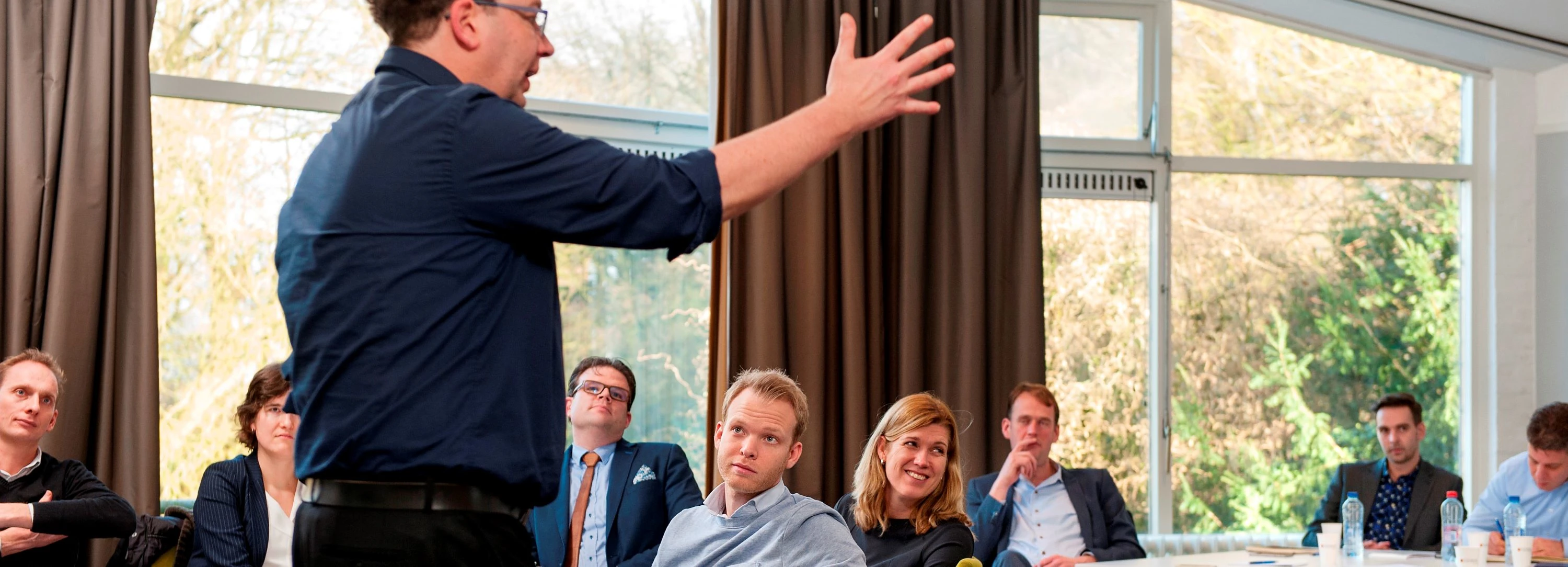Corona crisis has a positive effect on digitization and productivity. As various opinion makers have already pointed out, the Corona pandemic in which we find ourselves, accelerates all kinds of processes. Not only historically, morally and socially. The role of digitization is also accelerating.
This could be good news for the impact of digitization on labor productivity in the Netherlands in both the short and long term. In the short term, digitization now largely keeps our economy in the air, certainly the service sector, which is so important to the Netherlands. Thanks to the use of digital technologies, the decline in our gross national product (GNP) will be much less in 2020 than it would have been without these technologies.
Long-term value
However, this digital acceleration can also have a significant long-term value for the economy. In every crisis, the profitability of companies is under pressure. But this crisis creates a unique situation in which companies and entire sectors were shut down overnight. The virus outbreak therefore forces us to change our behavior. These changes seem to accelerate the development of new solutions for important social issues at a pace we have never seen before.
In recent weeks, important sectors in the Netherlands such as education, business services and health care – which together employ more than 4.5 million people – have been given a glimpse of these changes. Virtual care is breaking through, online teaching has been rapidly introduced on a large scale and the business services sector has, as far as possible, massively embraced working from home.
Skills make the difference
On the one hand, this digital acceleration is good news. Because in recent years it seemed to become increasingly complex for organizations to innovate successfully and thus become more productive, despite technological innovations in the field of artificial intelligence, for example. In addition, the contribution of IT capital to the growth of labor productivity also decreased, although this contribution has increased somewhat since 2015.
Explanations for these declining trends are that the transition from introducing innovative technologies to broad application is costing organizations time and money. Organizations also lack the right skills and are unable to establish new digital practices. After all, successful digitization requires new ways of working and services, different revenue models, new logistics concepts, new ways of learning and breaking old routines in many social domains. Recent research shows that most of the differences in the market value of companies through digitization is not explained by investments in IT capital, but by investing in intangible innovations, such as management skills and the IT skills of users.
The new normal
Now that digitization is taking such a defining position in this pandemic, the declining trend in the contribution of IT to productivity growth may take a definite turn once and for all. The social changes brought about by the virus may well be more fundamental and it is difficult to estimate these changes now.
After the forced lockdown, people might come together less for events, travel less or keep their distance in the longer term. This has unpleasant consequences for sectors such as the travel and event industry. In any case, it will lead to new ways of working in many sectors. As a result, digital communication, working and collaboration will become the new normal.
Professions in danger
But there is also a danger on the horizon. There is no guarantee that everyone will benefit equally from this potential productivity growth. We must realize that digitization can have a positive impact on a productive economy. But at the same time, we are accelerating towards an economy that to a lesser extent runs on human labor in various sectors.
Digitization of society can lead to larger groups of people whose work becomes redundant. These will generally be people with a low level of education who do mostly repetitive work. After all, especially in routine tasks, digital work will replace human labor. And these are precisely the vulnerable groups of people at the bottom of the labor market who are hardest hit by crises due to job losses.
Designing a healthy society, in which professional groups threatened by digitization are taken care of, is a major challenge. Due to the pandemic and the digital behavioral change that this entails, this challenging issue is coming towards us at an accelerated pace.
The Modular Executive MBA in Business & IT centers on linking business with IT. Our integral approach to these two disciplines offers you the opportunity to bridge the gap while facing tomorrow's challenges. Personal development and growth is key in all the modules we offer. For an overview please check here.
Would you like to know more about the strengths of Leadership, Entrepreneurship and Stewardship in challenging times? Take a look at our online information platform.
Tags
Related programs
-
Modular Executive MBA in Business & IT
Start date: spring & autumnLanguage:- English
Location:- Breukelen
The Modular Executive MBA in Business & IT focuses on technology as the driver of your business.
View program
-
Business Processes and Management
Start date: Start Spring 2024Language:- Dutch
Location:- Breukelen
This module is only given in Dutch. Please visit our Dutch site.
View program
-
Digital Strategy and Transformation
Start date: September 11, 2025Language:- English
Location:- Breukelen
The module Digital Strategy and Transformation looks at the strategic perspective of digital transformation. Part of our Modular Executive MBA Business & IT.
View program
-
Sustainability and Systemic Change
Start date: Not knownLanguage:- English
Location:- Breukelen
Develop knowledge and skills to create opportunities for sustainable value creation from a leadership rol.
View program
-
Digitalization and Boardroom Dynamics - Modular MBA Elective
Start date: 17 March 2025Language:- English
Location:- Breukelen
The module Digitalization and Boardroom Dynamics looks at technology's effect on the board. Part of the Modular Executive MBA Business & IT.
View program
-
Management of AI and Cyber Security
Start date: April 7, 2025Language:- English
Location:- Breukelen
The module Management of AI and Cyber Security is part of the Modular MBA Business & IT and focuses on the threats of cyberattacks and the opportunities of Artificial Intelligence.
View program

